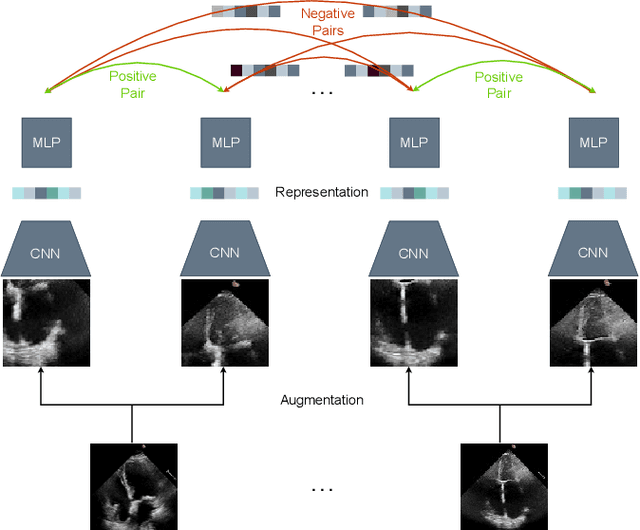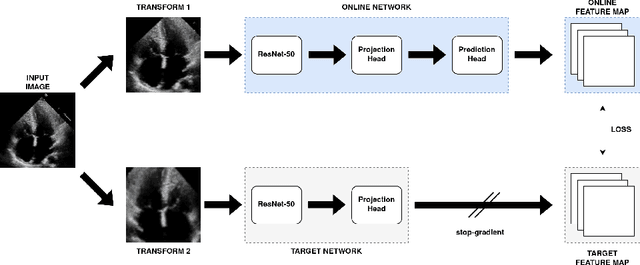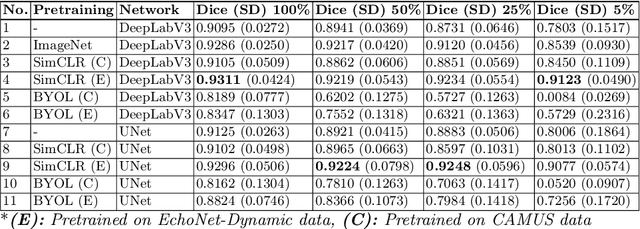Is Contrastive Learning Suitable for Left Ventricular Segmentation in Echocardiographic Images?
Paper and Code
Jan 16, 2022



Contrastive learning has proven useful in many applications where access to labelled data is limited. The lack of annotated data is particularly problematic in medical image segmentation as it is difficult to have clinical experts manually annotate large volumes of data. One such task is the segmentation of cardiac structures in ultrasound images of the heart. In this paper, we argue whether or not contrastive pretraining is helpful for the segmentation of the left ventricle in echocardiography images. Furthermore, we study the effect of this on two segmentation networks, DeepLabV3, as well as the commonly used segmentation network, UNet. Our results show that contrastive pretraining helps improve the performance on left ventricle segmentation, particularly when annotated data is scarce. We show how to achieve comparable results to state-of-the-art fully supervised algorithms when we train our models in a self-supervised fashion followed by fine-tuning on just 5% of the data. We also show that our solution achieves better results than what is currently published on a large public dataset (EchoNet-Dynamic) and we compare the performance of our solution on another smaller dataset (CAMUS) as well.
 Add to Chrome
Add to Chrome Add to Firefox
Add to Firefox Add to Edge
Add to Edge